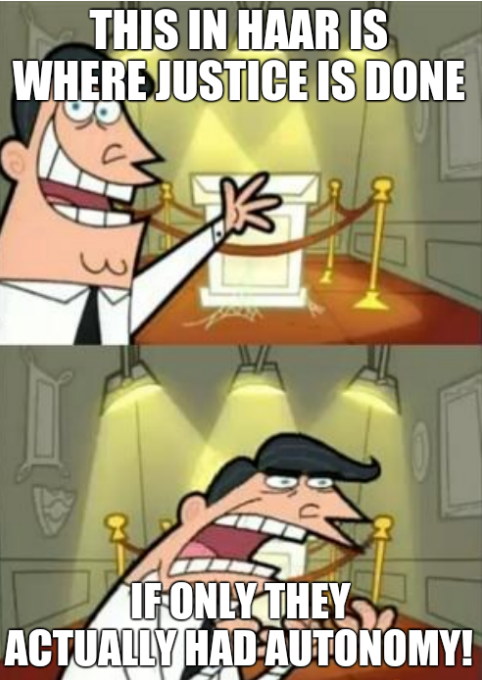The EPO's Staff Lacks the Autonomy Crucially Needed to Decide Whether European Patents Granted by the EPO Are Indeed Legitimate
- Dr. Roy Schestowitz
- 2019-11-01 14:10:40 UTC
- Modified: 2019-11-01 14:10:40 UTC
Without proper separation of powers it's almost like asking the same person the same question over and over again

Summary: Asking the EPO to assess its own work overlooks the fact that the EPC is being violated (many invalid patents get granted) and judges/examiners lack much-needed autonomy, leaving much of the burden on courts (and hugely expensive legal battles only law firms benefit from)
WE have long spoken about European software patents and patents on life. There are practical and ethical (moral) issues associated with these.
"There are practical and ethical (moral) issues associated with these."We've just stumbled upon this report from Life Sciences Intellectual Property Review, a site of firms/people who lobby (for profit) for patents on life, plants, seeds, animals, nature, bodyparts etc.
To quote:
Lawyers representing Italian medical devices company iVis Technologies have welcomed a decision of the European Patent Office (EPO) to confirm the validity of one of the company’s patents, and are now pressing ahead with infringement claims against a German rival.
Based in Taranto, iVis holds a European patent (number 1 428 470) covering an apparatus used in certain eye tissue transplants.
The device is designed to be used in customised lamellar (involving only selective layers) transplantation of corneal tissue.
So it's only now that actual courts -- independent of the European Patent Office (
EPO) -- will get to assess the underlying claims/patent/s. Even the appeal boards of the EPO can no longer be relied on to assess compliance w.r.t. or in relation to EPC/law (
their composition is itself in violation of the EPC, thanks to
Battistelli's actions and subsequent coverup by
António Campinos).
⬆

